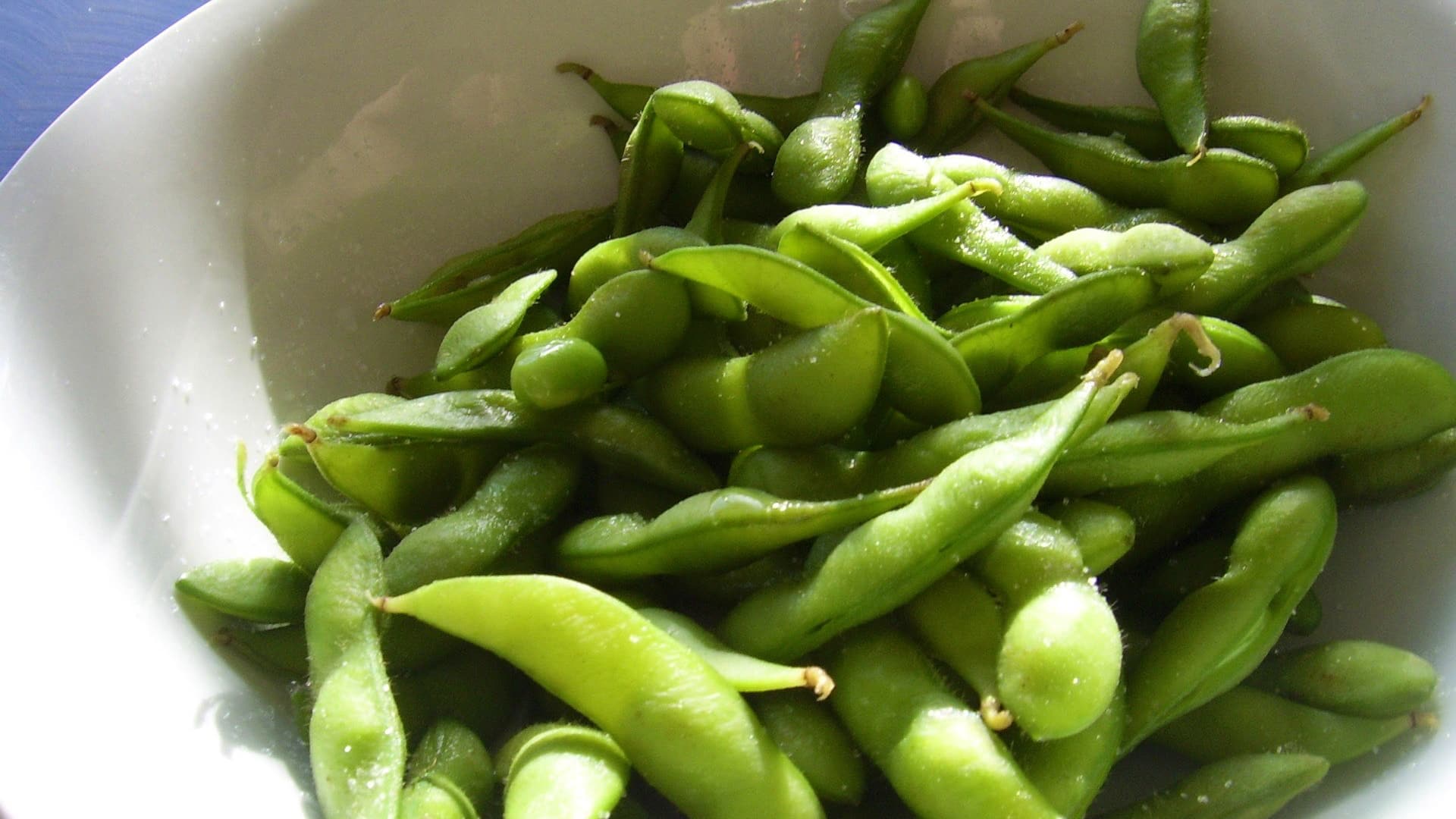
Tempeh
Tempeh, tofu, soymilk, miso, edamame, and other soy products, including the soybeans themselves, are high in nutrients typically associated with other legumes, including fiber, iron, magnesium, potassium, protein, and zinc.
Soybeans naturally contain a class of phytoestrogens called isoflavones. People hear “estrogen” in “phytoestrogens” and assume that means soy has estrogen-like effects. Not necessarily. Estrogen has positive effects in some tissues and potentially negative effects in others. Soy, it seems, lowers breast cancer risk, an antiestrogenic effect, but can also help reduce menopausal hot-flash symptoms, a proestrogenic effect. So, by eating soy, you may enjoy the best of both worlds.
Soy for breast cancer? Researchers found that women with breast cancer whose tumors were responsive to estrogen (estrogen-receptor positive breast cancer) and those whose tumors were not (estrogen-receptor negative breast cancer) and who ate the most soy lived significantly longer and had a significantly lower risk of breast cancer recurrence than those who ate less. In one study, 90 percent of the breast cancer patients who ate the most soy phytoestrogens after diagnosis were still alive five years later, while half who had eaten little to no soy had died.
Soy consumption has also been shown to benefit our kidneys, which appear to handle plant and animal proteins very differently. Within three hours of eating tuna, for example, kidney filtration rate can shoot up 36 percent as our kidneys rev up into hyperfiltration mode, yet eating the same amount of protein in the form of tofu doesn’t appear to place any additional strain on the kidneys.
As healthy as tofu is, even better is tempeh, a whole soy food. If you look closely at tempeh, you can actually see all the little soybeans. My Daily Dozen recommends three daily servings of beans, with a serving defined as a half cup of cooked tempeh, for example.
For substantiation of any statements of fact from the peer-reviewed medical literature, please see the associated videos below.
Image Credit: Wikimedia Commons. This image has been modified.
Popular Videos for Tempeh


Who Shouldn’t Eat Soy?
How can soy foods have it both ways with pro-estrogenic effects in some organs that...All Videos for Tempeh
-

How Not To Age – Live Presentation
In this live lecture, Dr. Greger offers a sneak peek into his latest book, How Not to Age, a New York Times Best Seller.
-

Dietary Sources of the “Longevity Vitamin” Ergothioneine
It may be even more important to include mushrooms (or tempeh) in our diet as we age.
-

Food for Hair Growth
Hot peppers, soy foods, and pumpkin seeds may help with hair loss.
-

Plant-Based Meat Substitutes Put to the Test
What are the effects of plant-based meats on premature puberty, childhood obesity, and hip fracture risk?
-

Dr. Greger’s Daily Dozen Checklist
In my book How Not to Die, I center my recommendations around a Daily Dozen checklist of everything I try to fit into my daily routine.
-

Dr. Greger’s Daily Dozen Checklist
In my book How Not to Die, I center my recommendations around a Daily Dozen checklist of all the things I try to fit into my daily routine.
-

Fermented or Unfermented Soy Foods for Prostate Cancer Prevention?
Which appear more protective: fermented soy foods, such as miso and tempeh, or unfermented soy, like tofu and soy milk?
-

Who Shouldn’t Eat Soy?
How can soy foods have it both ways with pro-estrogenic effects in some organs that can protect bones and reduce hot flash symptoms, yet also anti-estrogenic effects in others that protect against breast and endometrial cancer?
-

Breast Cancer Survival and Soy
All three human studies on soy and breast cancer survival suggest that soy in sufficient amounts may improve survival in women diagnosed with breast cancer.
-

Carcinogens in the Smell of Frying Bacon
Frying bacon outdoors decreases the concentration of airborne nitrosamine carcinogens.
-

Carcinogenic Putrescine
Biogenic amines such as spermine, cadaverine, and putrescine are chemical compounds of decay that may have adverse health effects. Which foods are most contaminated: beer, blue cheese, feta cheese, kimchi, miso, sardines, sauerkraut, sausage, soy sauce, tempeh, tuna, or wine?
